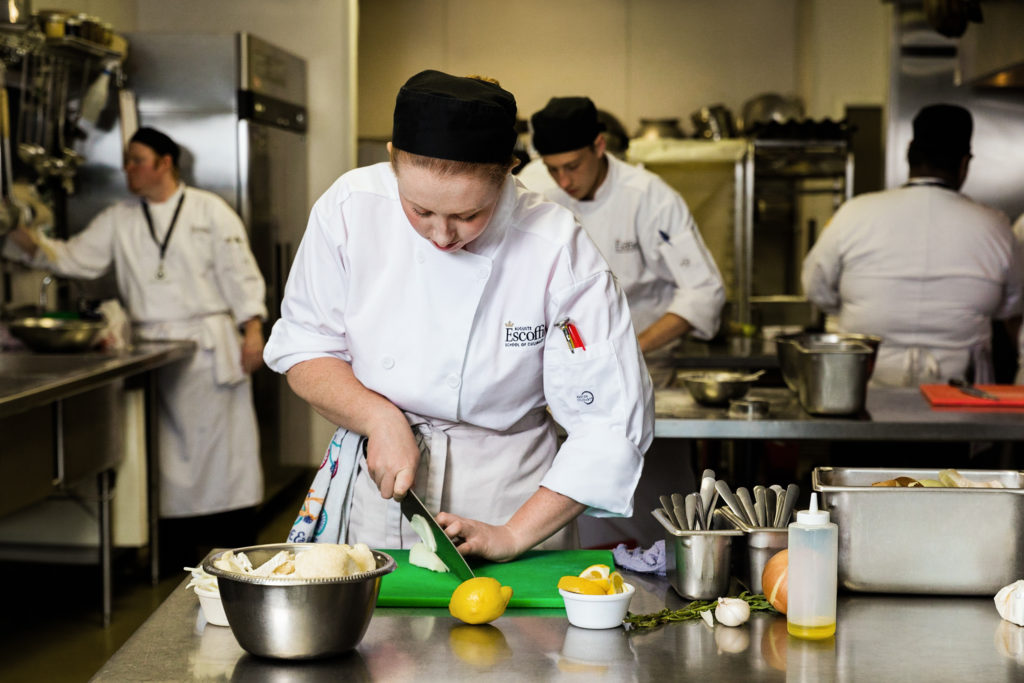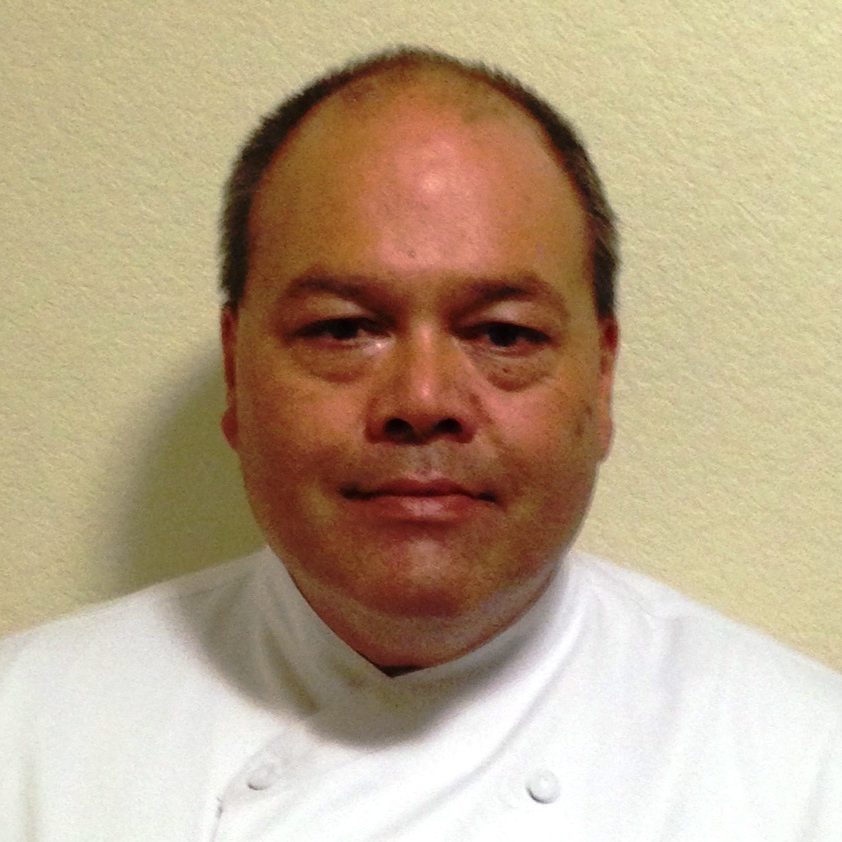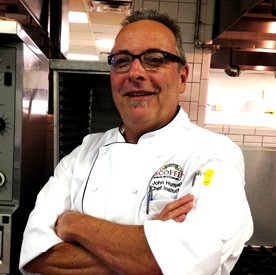Degrees or diplomas often come with more job opportunities and higher salaries. The culinary industry is no different!
Although a culinary school degree is not required for an entry-level job in the industry, what do actual hiring chefs think about culinary school graduates?
One survey showed that 70% of employers either prefer or require that general managers and executive chefs have culinary or pastry arts degrees or diplomas.1 So if you’re dreaming of that executive chef salary, a degree or diploma from a reputable culinary school is a good place to start.
But it’s not only executive-level positions that benefit from credentials. 69% of employers also prefer or require that first line supervisors have a degree or diploma. And 53% prefer that chefs and head cooks have degrees or diplomas.
Hiring chefs may be willing to pay more to satisfy that preference. That same survey showed that hiring managers as a group pay an average of 21% more for Culinary Arts graduates and 20% for Pastry Arts graduates.
But why? What is it about degrees and diplomas from culinary school that hiring chefs find so valuable?
Reduced Training Time
When executive chefs hire culinary graduates, they know that they can expect the new hire to come in with a certain level of knowledge. The chef won’t have to go over the basics like how to hold a knife or make common cuts.

The graduate should also know their way around the kitchen and be familiar with the stations and terminology. Plus, one chef in the same survey said that cooks with degrees pick up the menu more quickly. This may be because they already know the components of the dishes, and simply have to learn to put them together. If you wanted someone to write a sentence, it would take a lot longer if you had to teach them the alphabet first!
In a commercial kitchen where time is of the essence, many chefs find this reduced training time is absolutely worth an increased culinary arts salary.
The Culinary Arts curriculum at Auguste Escoffier School of Culinary Arts includes knife skills, seasoning, sanitation (more important than ever during COVID-19), and more foundational skills that are used in the kitchen on a daily basis.
Baking & Pastry students also have fundamentals in their curriculum, which include mixing methods, classic pastry doughs, breads, and more. Hiring chefs can expect these graduates to be familiar with the rudiments of baking — and that has definite value!
“It’s hard to have no experience going into a bake shop and be able to pick it up. It is pretty technical, and in baking following recipes becomes more important. You need to have the fundamentals.”
Escoffier Pastry Arts Chef Instructor Emily Maddy
Diverse Skill Set
A line cook who has worked at one restaurant for a few years will have some skills. But that cook has probably made the same dishes from only a handful of menus over that time.
On the other hand, a culinary school graduate has been exposed to a wider range of techniques. They’ve learned from a variety of Chef Instructors, instead of a single Executive Chef. As a result, they may come to a new job with more “tricks” and a more broad knowledge base.
For example, Escoffier’s Diploma in Culinary Arts includes education in the science of baking and pastry, even though it isn’t a baking-focused program. A cook who hasn’t been to culinary school may not know the baking fundamentals if it wasn’t part of his or her regular duties in their previous job.
“Learning in school and learning on the job are very much different from each other. Today classical cooking and learning the basics of true culinary arts skills is not taught in the career world but in school you can learn that, and I feel that it is a core part of culinary arts that every chef should have the opportunity to learn.”
Anthony Avasakdi, Online Culinary Arts Graduate; Manager of Culinary & Operator Support Services, Ventura Foods
Escoffier graduates also have the opportunity to learn skills beyond those they’ll need in the kitchen. With an entrepreneurial focus, the curriculums include cost analysis, portion sizing, and even business communications. If an Executive Chef is looking for a protégé, an applicant with these skills may stand out among the rest — and be more valuable.
Watch Fall 2021 Escoffier graduates share their excitement for the future.
Passion & Dedication
Turnover in the food industry is high — 74.9% in 2018. And that kind of turnover is more than inconvenient. It’s expensive! It can cost up to 33% of an employee’s annual salary to replace them.
So it’s not only a benefit to restaurant operations to hire culinary school graduates. It’s a benefit to the bottom line.
Cooks with a degree or diploma demonstrate their investment in the industry. They’ve committed both time and money to their education. Chefs and managers know that culinary school grads are more likely to view this industry as a career, rather than a job.
Employees with a passion for their work tend to stay in their positions for longer. So even if that employee is paid a higher salary, the restaurant can still save money long term by hiring dedicated employees and reducing turnover.
“When I hire an Escoffier student, I know that I’m going to get someone with talent, creativity, and passion for the art.”
Holden O’Leary, Boulder Culinary Arts Graduate; Executive Chef, Jolynn’s Food and Spirits
The Essential Culinary Career Survey
The Essential Culinary Career Survey
What's your ideal culinary career: Fine dining? Your own restaurant? Pastry? Get our self-evaluation survey to find out!

We’ve compiled a checklist of all of the essential questions into one handy guide: career options, culinary interest surveys, educational opportunities, and more.


Increased Professionalism
Culinary school graduates display a level of professionalism that those who are brand new to the field may not share. They know to keep their station clean. They understand the importance of mise en place.
They’re also more aware of kitchen etiquette. They know to keep their eyes and ears open, stay aware of what’s going on around them, and always say, “Yes, chef.”
Much of what leads to success in culinary school also leads to success in a real-world kitchen environment. Students are expected to show up on time, ready to work, just like employees. This habit can automatically give culinary school graduates an advantage.
“I’m going to teach you to be in a clean uniform, to be on time to be respectful, to have all your stuff together. By having all of those things, when they go to their first job and the jobs after that, it’s going to give them a leg up on everybody else.”
Chef John Hummel, Culinary Arts Chef Instructor at Escoffier’s Austin campus
Escoffier students don’t only learn these lessons in their classes. They also complete an industry externship where they get to work in a professional kitchen. This gives them both the classroom and the real-world experience that will better prepare them for the rigors of the workplace.
There will always be more to learn after you’ve completed culinary school. A life in the kitchen is a life of learning!
But the foundational skills and dedication to your career that you show by attending culinary school can make you a more attractive — and more valuable — prospect to hiring chefs.
If you’re ready to take your career to the next level, contact our admissions department. They can answer your questions and help you get your application started in just a few minutes.
If you found that article helpful, try these next:
- Is a Culinary Degree or Diploma Worth It?
- 3 Ways Culinary School Can Boost Your Career
- How Culinary Students Explore Flavor Profiles
1 Source: Oliver Wyman Culinary Survey March 2017 and Analysis

 “It’s hard to have no experience going into a bake shop and be able to pick it up. It is pretty technical, and in baking following recipes becomes more important. You need to have the fundamentals.”
“It’s hard to have no experience going into a bake shop and be able to pick it up. It is pretty technical, and in baking following recipes becomes more important. You need to have the fundamentals.” “Learning in school and learning on the job are very much different from each other. Today classical cooking and learning the basics of true culinary arts skills is not taught in the career world but in school you can learn that, and I feel that it is a core part of culinary arts that every chef should have the opportunity to learn.”
“Learning in school and learning on the job are very much different from each other. Today classical cooking and learning the basics of true culinary arts skills is not taught in the career world but in school you can learn that, and I feel that it is a core part of culinary arts that every chef should have the opportunity to learn.” “I’m going to teach you to be in a clean uniform, to be on time to be respectful, to have all your stuff together. By having all of those things, when they go to their first job and the jobs after that, it’s going to give them a leg up on everybody else.”
“I’m going to teach you to be in a clean uniform, to be on time to be respectful, to have all your stuff together. By having all of those things, when they go to their first job and the jobs after that, it’s going to give them a leg up on everybody else.”